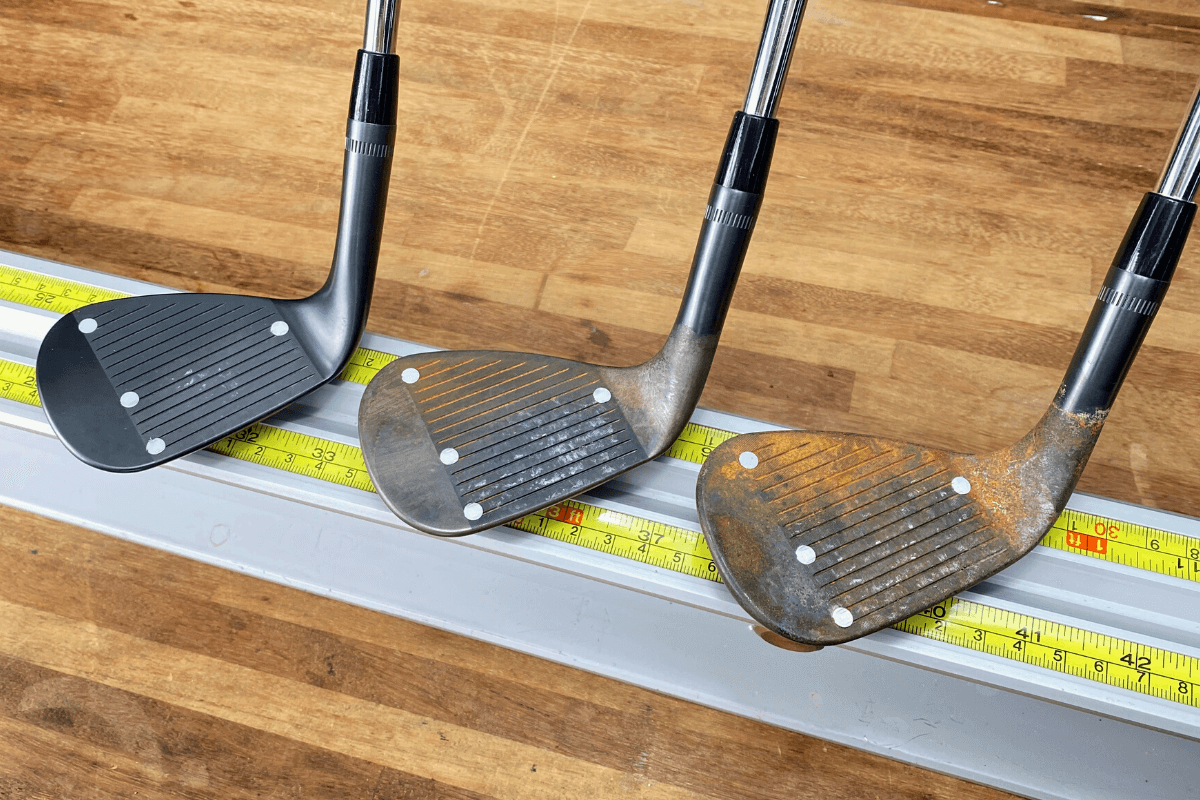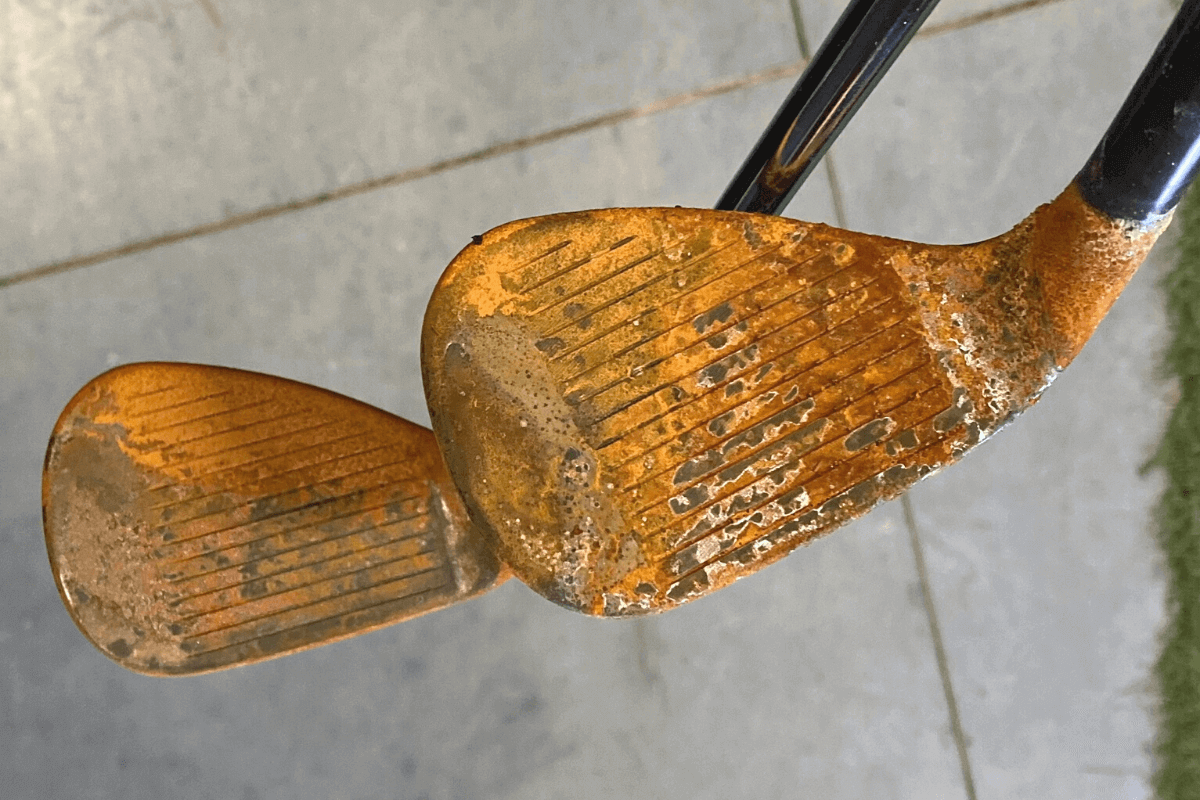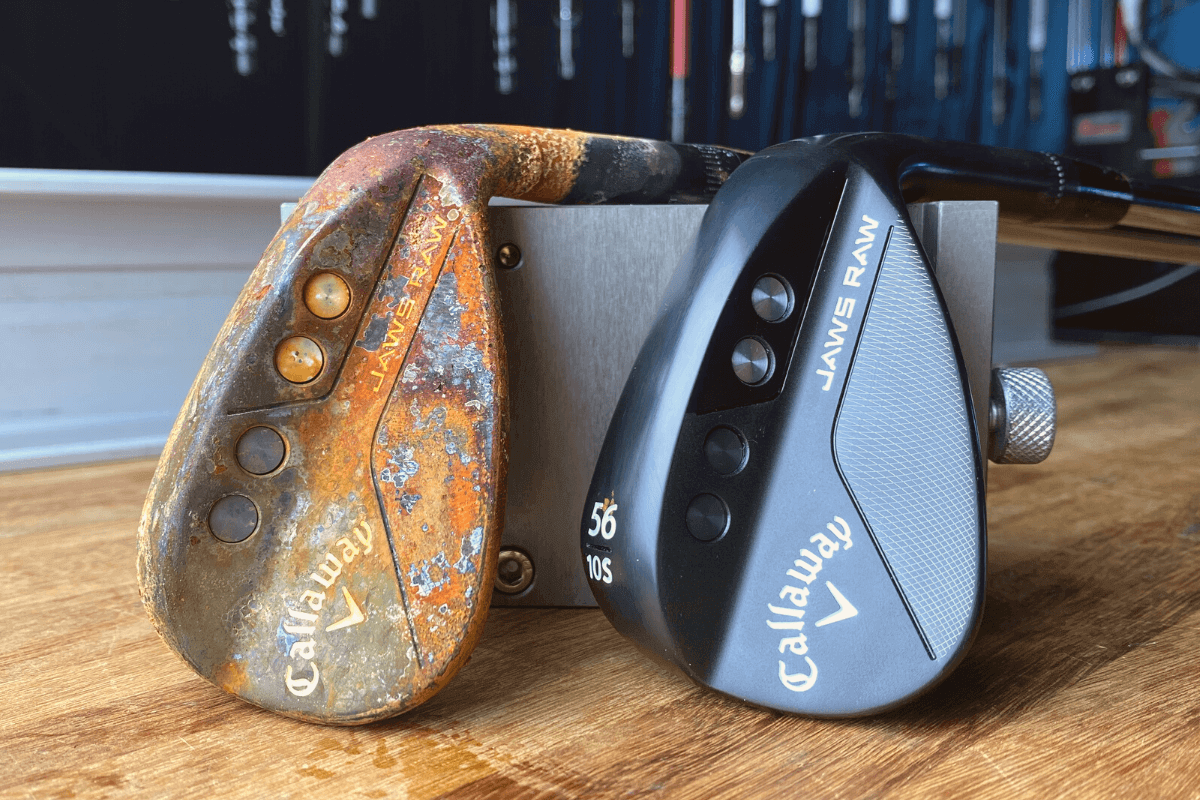This has been puzzling golfers for years.
Even as 2023 approaches, golfers remain fixated, as they have for years past, on the theory that rust adds spin.
A few months back, our #AskMyGolfSpy series included a segment on rust to educate the consumer on rust and whether it adds spin.
Here’s an early Christmas present: Eight out of eight manufacturers confirm that rust does NOT add spin.
But, as is our mandate, our curiosity and data-driven mindset demanded we find out for ourselves.
TESTING PARAMETERS
Here is the layout of our testing parameters:
- 15 testers
- 1 club – Callaway Golf JAWS Raw Black Plasma Wedge
- 3 conditions – Clean raw face, rust and extreme rust
- 16 shots per condition, per tester
- All shots were hit with Titleist Pro V1 golf balls
- Data was collected using ForeSight GCQuad launch monitor
GENERATING RUST
There are plenty of videos showing how to create rust quickly. We used a concoction of salt, distilled white vinegar, hydrogen peroxide and, of course, water. Two wedges were soaked in our concoction, removed and oxidized. By doing so, both got rusty.
For our “rust” condition, we cleaned up one of wedges to ensure there was less rust present in comparison to the other wedge (“extreme rust”).
The third wedge was left untouched in its purest form. The plastic wrap wasn’t removed until testing commenced.
All three wedges were raw wedges from Callaway Golf. They were also all 56 degree sand wedges.
KEY TAKEAWAYS
1. RUST MOST LIKELY DOES NOT ADD SPIN
Right off the bat, it was pretty evident the spin differentials between each condition were minimal. And when we say “minimal,” we are talking between 100 and 200 rpm. This was evident in our overall results.

The results strongly suggest that rust does not add spin. Rather, it could actually reduce backspin.
2. POSSIBLE ANOMALIES
Oddly enough, we saw some anomalies with spin results for some testers. These testers experienced roughly 173 rpm more on average when rust was present. Now, we aren’t going to jump ship and say, “rust does add spin.” However, it’s worth noting that anomalies occur, especially within the golf world.
What is the cause of this? Is it due to rust? Are the results more on an individual basis and thus unpredictable? Does a raw, un-plated wedge handle rust better?

3. RUST CREATES FRICTION
This is a fact. Now, does that friction positively or negatively affect spin performance off a wedge?
For the majority, it most likely affects spin negatively. Rust is dense enough to inhibit the purpose of grooves. Grooves are made to have a specific geometry that enhances spin. Furthermore, many wedges utilize face textures to assist with spin consistency, e.g., micro-ribs, micro-grooves or face blasts.
Rust has the potential to negate all of the positive features of a wedge, especially over time. Additionally, grooves are designed to tight specifications. Rust is unpredictable and most likely will compromise those precise specifications.
The worst scenario is a wedge that isn’t suppose to rust. Sure, it creates friction but that friction probably negatively impacts the performance features of the wedge, specifically the grooves. At this point, it is best to replace your wedges – pitching wedge, gap wedge, sand wedge, or lob wedge.
BOTTOM LINE
Much of the hoopla surrounding rusty golf wedges originates from PGA TOUR professionals. But not because of increased spin. Rust reduces glare.
There are plenty of golfers who dislike plated, shiny chrome finishes, especially on wedges. So a wedge with rust provides some sort of comforting aesthetic appeal to that segment. Plus, a rusty look can be trendy. If that matters to you, so be it.
As for actual performance, it does not add anything of value. For us, rust isn’t going to enhance the performance of a wedge, especially in the long run. If anything, it’ll likely be detrimental to the performance of the grooves. You don’t want that.
Sure, we witnessed some anomalies. That is a part of capturing data and performing lab tests. However, these anomalies aren’t enough to definitively to change the reality that rust does NOT add spin.
In the end, you may like the aesthetics of rust. However, eventually, it’ll do more harm than good.



















JD
1 year ago
More interesting would be a more organically rusted face. Not saying it’ll be different, but makes you wonder if it would be. Like get face wet and mostly wipe it off. A slower developing rusted face similar to how it would rust if used normally..